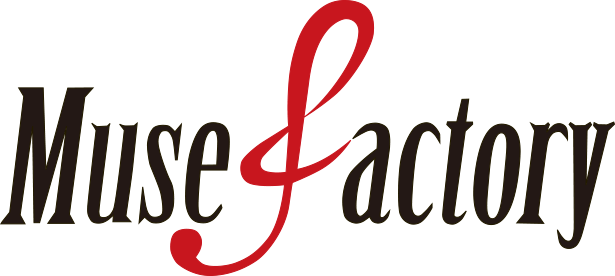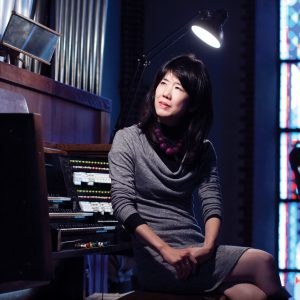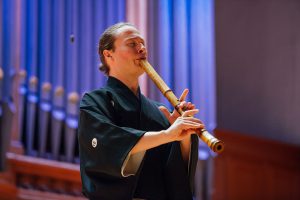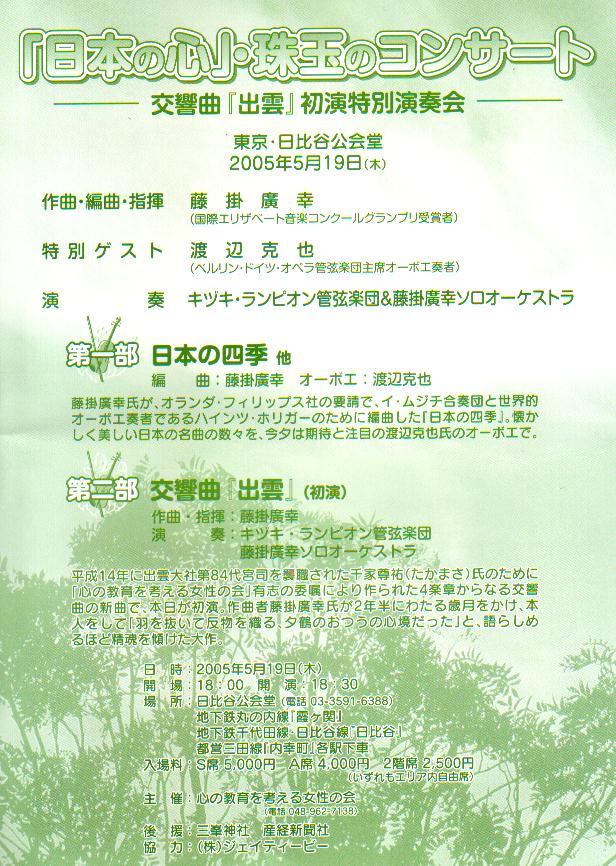Hiromi Shinoda Interview
A soprano who plays a principal role in many creative operas and musicals
We have interviewed soprano Hiromi Shinoda. Her activities are not limited to singing. For instance, she is producing a solo opera performance which is literally a one-man show. At the same time, she is planning and directing stage productions and collaborating with contemporary dancers and actors.

Official HP of Hiromi Shinoda▶︎
Profile
Gifu Kano High School Music course
Kunitachi Collage of Music Vocal Music coursePlayed several an important roles for creative operas and musicals, at the same time in charge of teaching of singing and being music director
The representative work ——- “Opera: A song of paper-making” , “Opera “Omnibus Style: A bean jizo “, “Yaobikuni”, “Musical: BUN-NA”, “Media” etc.In the opera: A song of paper-making, playing a principal role named Yuki for 20 years from the first performance, including opening commemorative performance at Gifu clear stream culture Plaza and the 20th anniversary special commemorative performance.
Performing as a soloist of chorus at ceremonies, concerts at museums, hospitals and schools.Producing solo opera performance “Yuzuru”, “Zo Ressha ga yattekita (meaning: Elephant train is coming)”, and “Dojoji” which she plays 3 roles by her self with traditional Japanese music accompaniment.
Receiving high reputation on “Terute and Oguri”, “Kuzunoha” which are stages of 2 people who sing and perform contemporary dance, and “Yuzuru” which is a stage of a soprano singer and an actor. Wrote script on “Kuzunoha”
Soprano recitals for 12 times at Salamanca Hall, Nagaragawa Convention Center, Gifu City Cultural Center, Clara Saal, cultural property places at Murakuniza.
Lunched “Hida Mino Uta no Nakama” in 2021, and will be taking palace the first concert of “Tengujyo-paper” at Gifu clear stream culture Plaza.
2000 Gifu art encouragement Awarded
2019 Gifu art and cultural contribution AwardedA board of directors at Gifu Education and Cultural Foundation
Vice President of Gifu Art and Cultural Conference
A management council of Salamanca Hall
A member of Japan Federation of Musicians
Contents
What made you think to study vocal music? Do you have any stories?
I graduated from the music course at Gifu Kano High School, which is the same as Hiro Fujikake. I studied the foundation of vocal music there. I simply liked singing since I was a kid and I wanted to be a singer in the future. At the time, I was moved even by children’s songs in the textbooks, Italian songs, and arias from opera, so I was always copying musical scores to contemplate them. It was quite natural for me to go to the college of music and I was quite excited to be surrounded by music there. I was thrilled by the greatness of German lieder, and I was really into the mysterious world of French songs. At the same time, I was aware of the delightfulness and difficulties of learning vocal music, and I still feel the same. While studying vocal music, I had to face the realization that there is a limit to my voice, and I had to accept that harsh reality. On the other hand, I got interested in acting to seek more profound expression. Also, I realized my passion for describing the feeling of a role using the beautiful Japanese language.
Please tell us about the things you struggled with when you undertook the challenge of performing a one-man opera and doing everything from planning to direction by yourself. Please introduce the highlights.
When I was thinking of ways to introduce the charm of musical works more directly, I came up with the idea of one-man opera, in which the acting is done only by myself. I’ve never thought to change my tone of voice. Rather than just working as a vocalist, one-man opera requires understanding literature profoundly, sympathizing with people’s feelings, studying whole works, capturing the character of a role, and expressing detailed gestures. I practiced very hard and consulted specialists in each area. Thanks to my great teachers I managed to achieve my ideal expression. If you have a chance to see it at my stage, please enjoy the world of stories and songs delivered through subtle acting. I’m the only person on the stage; however, I would like to give thanks to many people who support my one-man opera.
You have appeared in many of Hiro Fujikake’s works. Do you have any memorable works or scenes?
I have a lot of memories with every one of Hiro Fujikake’s works.
Opera “The Vanished Sun” collaboration with China: Leading actress “Mei Fang”
I visited China with Hiro Fujikake to perform with children from a Chinese music school. I was quite impressed by their professionalism.
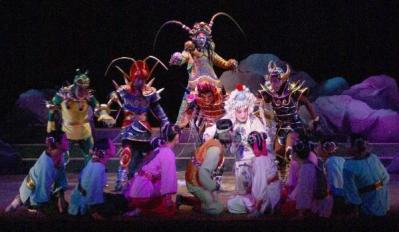
Musical “BUN-NA” : The role of mother sparrow
I performed with children from China in this work too. I realized the importance of physical ability in order to express the role of character. It was a challenge for me to express mixed feelings.
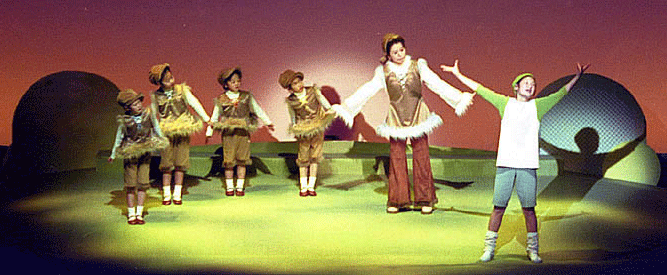
Opera “A song of paper-making” : Leading actress “Yuki”
I’ve been playing the principal character “Yuki” for approx. 20 years. In order to perform Yuki, I’ve learned a lot of things, like experiencing real paper-making and visiting places that have a connection to the play. We spent a long time practicing and this deepened the bonds with other performers.
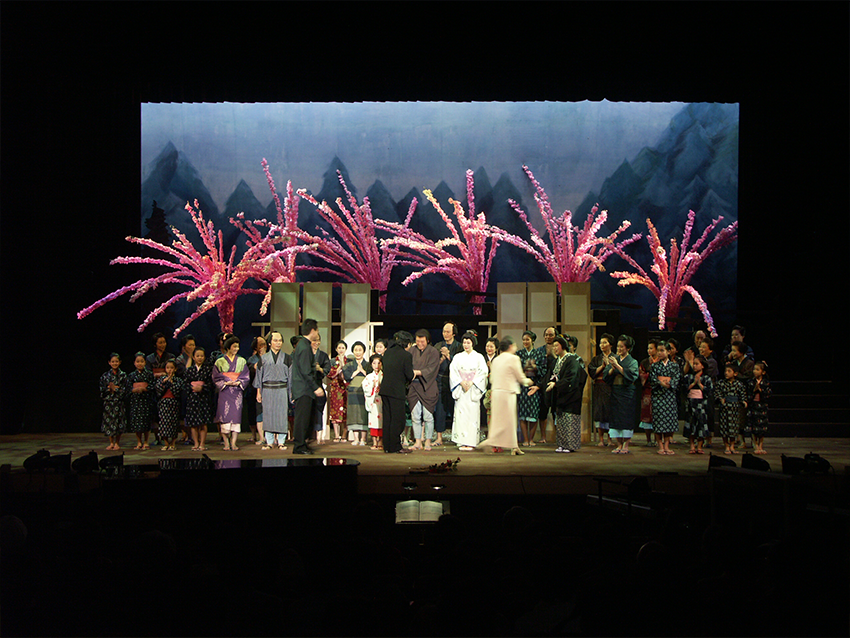
Opera (Omnibus Style) A bean “A bean jizo”: Leading actress and Nun
I played the role of a nun in this play, and I used to visit a temple to learn their customs through apprenticeship.
I was strictly taught the behavior of nuns and even how to treat Buddhist prayer beads.
This play made me think profoundly about how I could best express an internal sense of “nothingness” on the stage.
Musical: A tale of little world
I was in charge of teaching singing in this play. When I was reading the music sheet I was moved deeply and I made a phone call to Hiro at midnight.
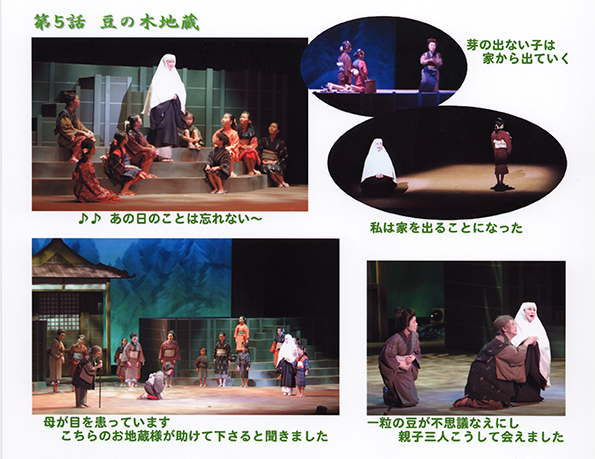
Please give some advice for anyone who is planning to study vocal music, since you focus on teaching singers.
I promise you will definitely improve if you really like it. I’m often asked by students “Do I have a talent for singing?” before starting practicing. If you’re seriously asking that question, I would suggest going a different way in your life. It will take many years to establish your style of singing. I’m also in the middle of development. I believe that improvement and stagnation, trial and error will lead you to achieve a certain level of vocal music. There is no shortcut in studying. Being a singer is quite tough; if you think you have a lack of talent, you will always face difficulties. Some people say singing is fun and I think it is right. As a music specialist, I would like to say, please continue your study no matter how tough it is; that toughness will change to delight at some point. Without experience, we cannot know how delightful it is. I would like to tell young people, please strive to let your dreams come true, and continue working hard believing your efforts will not betray you.
What would you keep in your mind when teaching chorus groups?
When I teach students, I always tell them to take responsibility for their assigned part. I think it is also important to get everyone’s heart together and carefully listen to each other’s voices. In order to accomplish the work, each person needs to be aware of what their roles are. Many other aspects are required, such as vocalization, intervals, understanding both the overall meaning of the work and the role of each performer to create an accurate interpretation, rhythm, speed, and dynamics. Please help each member improve their skills; that leads to a wonderful ensemble eventually.
Please let us know what you would like to focus on as an artist and teacher of vocal music in the future.
I believe that all arts are connected to each other profoundly. I always dream of creating a production which is touching to the audience and goes beyond the boundaries of literature, art, dance, drama, and music, and this is the premise behind my effort. Although the gold is always far away and the journey is full of difficulties, challenging myself is my pleasure and there are a lot of things I would like to tackle in my life.
